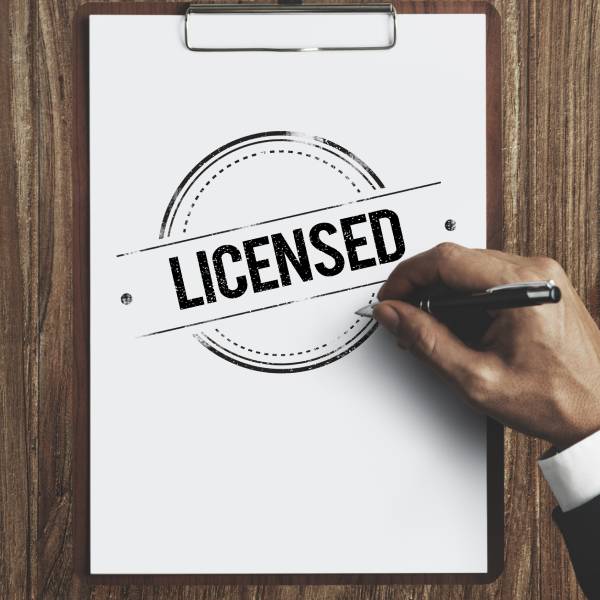
What is FSSAI License?
Businesses engaged in the production, processing, packaging, distribution, and storage of food items in India are required to hold an FSSAI (Food Safety and Standards Authority of India) Licence. It is provided by the FSSAI, a regulatory organisation in charge of making sure that the nation's food products are safe and of high quality. By mandating that enterprises adhere to the norms and regulations established by the FSSAI, the FSSAI Licence promotes food safety, cleanliness, and consumer protection. According to the size and nature of the food company, it is divided into many sorts, and the licence must be secured before beginning operations involving food.
Process of FSSAI License:
- FSSAI offers different license categories, including Basic Registration, State License, and Central License, based on the nature and scale of the food business. The appropriate license category should be identified based on the specific business activities.
- Download or obtain the application form for the relevant FSSAI license category you are applying for from the FSSAI website or their regional offices.
- Prepare the necessary documents for the FSSAI license application, including proof of identity, address proof, food safety management plan, premises layout plan, NOC from local authorities, partnership deed or memorandum of association, and any other relevant documents specified by FSSAI for the specific license category.
- FSSAI conducts premises inspection post-application submission to verify compliance with food safety standards. This includes evaluating infrastructure, hygiene practices, and food handling processes.

Benefits of FSSAI License:
- Legal Compliance: Having an FSSAI license ensures that your food business operates in compliance with the food safety and hygiene regulations set by the government. It demonstrates your commitment to maintaining high standards and meeting the legal requirements.
- Consumer Trust: An FSSAI license enhances consumer confidence in your food products or services. It signifies that your business follows proper food handling practices, uses safe ingredients, and meets quality standards, thus building trust among consumers.
- Business Expansion: With an FSSAI license, you can expand your business and explore new opportunities. Many commercial establishments and retailers prefer to work with licensed food businesses, making it easier to secure partnerships and distribution channels.
- Quality Assurance: The FSSAI license ensures that your food products undergo regular quality checks, thereby maintaining their safety, purity, and quality. This contributes to the reputation and credibility of your brand in the market.
FSSAI License Rules
The legal structure in India that ensures food safety and standards is governed by the FSSAI Licence Rules. The processes and specifications for getting and maintaining an FSSAI licence are outlined in these rules, including eligibility standards, supporting paperwork, inspections, labelling recommendations, hygiene best practises, and adherence to food safety legislation. By defining requirements for food enterprises, encouraging quality control practises, and creating a framework for oversight and enforcement, the regulations seek to protect the public's health. For food enterprises to guarantee the safety and integrity of their goods and preserve customer trust, adherence to the FSSAI Licence Rules is essential.

FAQ:
FSSAI License is a permit issued by the Food Safety and Standards Authority of India (FSSAI) to ensure that food businesses comply with food safety and hygiene regulations in India.
Any individual or entity involved in the manufacturing, processing, packaging, storage, or distribution of food products in India needs to obtain an FSSAI License.
To apply for an FSSAI License, you need to fill out the application form, gather the required documents, and submit them to the nearest FSSAI office or through their online portal.
FSSAI offers three main types of licenses: Basic Registration, State License, and Central License. The specific license type depends on the scale of operations and turnover of the food business.
The time taken to obtain an FSSAI License can vary, but it generally takes around 30-60 days from the date of application submission.
Benefits of having an FSSAI License include legal compliance, consumer trust, business expansion opportunities, quality assurance, and eligibility for government schemes and grants.
Yes, it is mandatory to display the FSSAI License number or FSSAI logo on food product labels or packages. This helps consumers identify compliant and safe food products.
Yes, if you have multiple locations of your food business, you may need to obtain separate FSSAI Licenses for each location, depending on their individual operations and turnover.
Yes, an FSSAI License needs to be renewed before its expiration. The renewal process should be initiated well in advance to ensure continuity of operations.
Operating without an FSSAI License is a violation of the law and can lead to penalties, fines, and even the closure of the food business. It is essential to obtain a valid license to avoid legal consequences.
Documents Required for FSSAI License
- Proof of Identity (PAN card, Aadhaar card, etc.)
- Proof of Address (Aadhaar card, Voter ID, utility bill, etc.)
- Applicant's Photograph
- Food Safety Management Plan
- Layout Plan of the Premises


